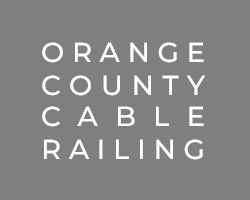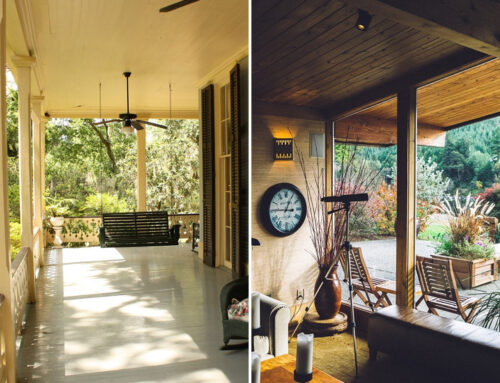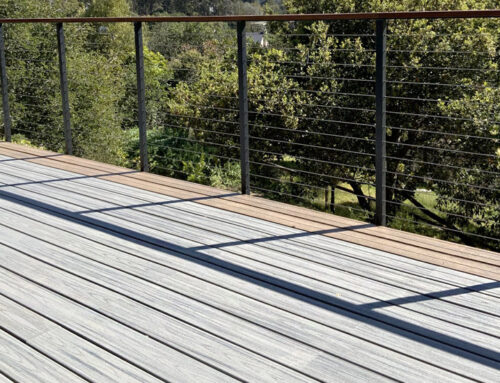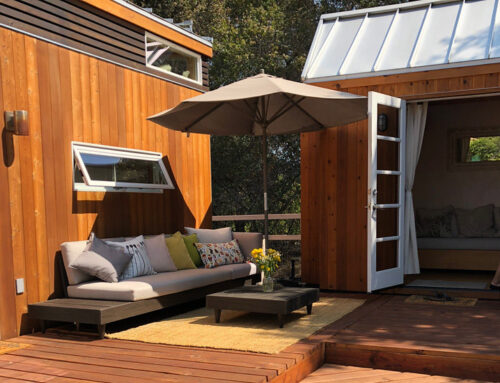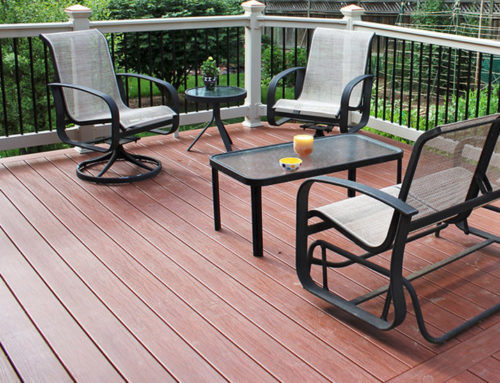Ipe, Brazilian Teak, Tigerwood and other tropical hardwoods bring to mind large, multi-layered, stunning decks. They also bring to mind a big price tag. Are tropical hardwood decks worthwhile? It depends on your priorities, but you should definitely know the pros and cons of tropical hardwood decks before you begin.
The Pros of Tropical Hardwood Decks
In the tropics, hardwood tree species grow slowly and are evolved to handle very high levels of humidity. As a result, they produce dense, moisture-resistant wood that is very useful as an exterior material, especially for decks. The pros of tropical hardwood species are many:
- Natural oils: Most tropical hardwoods and especially those favored for decks have natural oils which resist moisture and other sources of damage. This makes these species highly resistant to rot, decay, splintering, warping and more. Some will also resist fire better than other wood species would.
- Good looks: You can find hardwood decking in very rich colors. Most have a natural shine from the oils already in the wood. Some will grey with age, if you prefer that look.
- Strength: The density of these woods means that they are very strong and are therefore a good choice for large decks which might hold a lot of people or furniture.
- Maintenance needs: Some tropical hardwood decks do not need to be sealed or stained at all. Instead, all they need is to have debris swept off, be washed down for dirt occasionally, and spot treated if you stain them. In fact, water-based stains will not even stick to Ipe, the highest quality tropical hardwood, so you don’t need to even try it.
The Cons of Tropical Hardwood Decks
While there are many great benefits to tropical hardwood decks, there are a few disadvantages that you should understand before you order one:
- Price: By far the biggest problem with tropical hardwood decking is the price.
- Color: Do you love that weather cedar look? Or maybe you want a muted color deck to work with some styles? You won’t find those options in tropical hardwoods, almost all of which have very intense color.
- Installation challenges: If you’re making the investment into a tropical hardwood, be sure you have professionals to install it. Ipe is so hard it can dull some saw blades. It is also very heavy, which can make working with it a pain.
Are You Getting the Right Hardwood?
Tropical hardwoods are not all the same; some are softer and less durable than others. If you’re investing in it, be sure you’re getting a variety you’ll be happy with. Here is a quick run down of the possible tropical hardwoods often used on decks:
- Ipe: This is the gold standard of tropical hardwoods. It is the densest, strongest, and available in a huge range of rich colors.
- Brazilian Teak: Also known as red cumaru, this wood is softer than Ipe and must be kiln-dried in order to prevent shrinkage problems. Red cumaru is strongly prefer to yellow cumaru for decks.
- Tigerwood: This is one of the few decking options that darkens with age. However, it also is softer than ipe and less durable while still being one of the hardest woods available.
